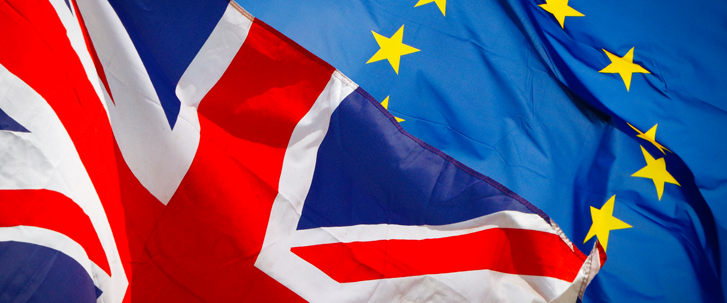
With the passage of the Withdrawal Agreement Act and its acceptance by EU representatives, the UK is set formally to leave the European Union today (31 January 2020) and enter into the period of transition, supposed to last only until December.
I have written many times about my own views on Brexit, which I appreciate will accord with many, but by no means all, of our colleagues and students at Nottingham.
However we may have voted in the original referendum and subsequent general elections, and whatever the debates that still continue across the country, Brexit is becoming a reality that we must face.
While the UK enters the transition period, following EU rules if no longer making them, my thoughts are with our more than 800 colleagues who work and live as a truly valued part of our University and local communities.
My thoughts also turn to the future arrangements for the country and the University as we both forge our futures across the globe and beyond membership of the EU.
The government faces a complex series of negotiations over a rapid timescale to secure the country’s new economic and political engagement with the EU.
While reassuring noises are being made, many significant questions remain for higher education, not least the Erasmus+ student mobility and Horizon 2020 research programmes, both of which are set to end in their current form this year.
In other areas, the government’s direction of travel is clearer and welcome. They have recently confirmed plans for a "global talent" visa, which will offer a fast-track route into the UK for researchers. It has also signalled that they will eliminate the £30,000 minimum salary threshold in favour of a future ‘points-based’ immigration system that focuses on the talent needed in the country, rather than how much an individual earns.
The University remains active with our partners in the Russell Group and Universities UK in lobbying government to mitigate the impact of Brexit on our staff, students and research.
The University's EU Taskforce continues to prepare for a post-Brexit environment, developing approaches to protect student recruitment, research partnerships, funding and grants and ensure the University continues to thrive.
This includes cultivating our existing, and developing new strong relationships with EU university partners. Just this week I have signed a Memorandum of Understanding with the University of Tübingen in Germany, and we are working to develop further our existing multi-million research contracts in European-funded aerospace partnerships.
We remain an active and powerful member of the Horizon 2020 research programme until its conclusion, and our Pro-Vice-Chancellor for Research & Knowledge Exchange, Professor Jessica Corner, has called on all colleagues engaged in research to continue to apply for programmes and funding.
As we enter the next tumultuous period for politics in the UK, the University will continue to do all we can to support our staff and students. Brexit Contacts and information are in place to support local planning for Brexit and answer any queries or issues that colleagues raise.
Our new strategy has reinforced our commitment to cultivating a global mindset on all our campuses. However you are observing, or indeed ignoring, the clock on Friday evening, I give you my promise that the University of Nottingham will continue to be a globally-focused university, devoted to global education and scholarship, where everyone continues to be welcomed, supported and valued.

Professor Shearer West
Vice-Chancellor
31 January 2020